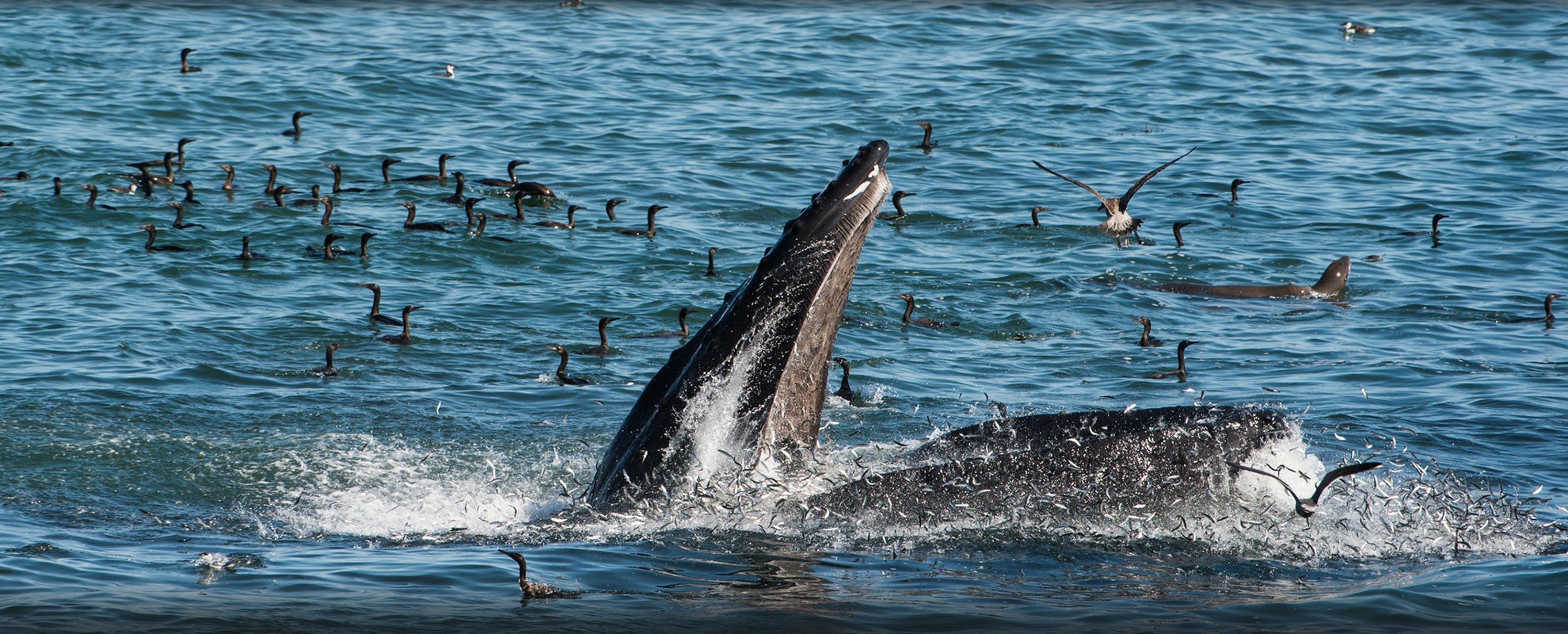Congress Considering Revamp of Nation’s Key Fisheries Law
The climate crisis is changing oceans, our laws must address that

This page was published 4 years ago. Find the latest on Earthjustice’s work.
How we manage our fisheries can have profound effects on the health of ocean ecosystems and the coastal communities that depend on them. On one hand, science-based, ecologically focused fishery management can support sustainable fisheries and improve ecosystem resilience. On the other hand, short-sighted management decisions that treat marine life as mere commodities without accounting for their interactions with other species and their environment contribute to biodiversity loss, diminished resilience to climate change effects, and unsustainable, unstable fisheries.
Given what’s at stake, updating the Magnuson-Stevens Fishery Conservation and Management Act, the law that governs United States’ fishery management choices, is crucial.
Congress first enacted the Magnuson-Stevens Act in 1976. The law aimed to foster profitable U.S. fisheries while preventing overfishing. It created the nation’s eight regional fisheries management councils and established national jurisdiction of U.S. waters out to 200 miles from land. Importantly, it has always required that fishery management be based on sound science, meaning management must evolve as science evolves.
Earthjustice has advocated for over 20 years to ensure that fishery management decisions use sound science to protect not just fish species but the web of life to which they are inextricably connected. While the Act has some clear requirements in this respect, it’s time for the law to catch up with today’s realities.
This week, a bill has been introduced to reauthorize the fisheries law for the first time since 2007. In the 14 years since the last fisheries law overhaul, we’ve found ourselves facing even more challenges — warmer temperatures from the climate crisis causing fish to shift and move, more marine species in decline due to the biodiversity crisis, and stepped-up exploitation that’s depleting many fisheries and ocean biodiversity. The National Oceanic and Atmospheric Administration recently released the 2020 Status of Stocks, an annual report card detailing the health of U.S. fisheries. The report showed an increase in the number of overfished stocks, meaning fish populations are too low to support sustainable fishing in 20% of known stocks. The number of rebuilt fisheries remained stagnant and eight previously rebuilt stocks have become overfished again.
With the health of our fisheries on the decline over the last few years, we also see a decline in the ocean ecosystems that those fisheries are a key part of. With this bill, Congress has an opportunity to protect the ocean and strengthen our fisheries.
On July 26, 2020, U.S. Representative Jared Huffman (CA-02), chair of the House Subcommittee on Water, Oceans, and Wildlife, and U.S. Representative Ed Case (HI-01) introduced the Sustaining America’s Fisheries for the Future Act. The new bill strengthens the law and makes several important improvements to protect marine fisheries and support coastal communities, including finding ways to adapt to the changes already upon us from the climate crisis.
Importantly, Congressmen Huffman’s and Case’s legislation also improves agency transparency and public accountability. Marine fish and the rich human and wildlife communities they support belong to everyone, and it’s important that everyone has the opportunity to weigh in on how resources are managed.
Here are some other key aspects of the Sustaining America’s Fisheries for the Future Act. The proposed legislation:
- Protects vulnerable fish and wildlife populations by requiring improved efforts to cut down on “bycatch” — that is, the unintentional catch of creatures like sharks, sea turtles, and marine mammals as fishing vessels are trying to catch other species. The legislation also promotes more comprehensive consideration of the impact that bycatch has on biodiversity and marine ecosystems.
- Promotes quicker recovery of fish populations that have fallen to low levels and more decisive action to end overfishing. It requires the federal Fisheries Service to actively monitor recovery efforts, update measures that are not working, and provide greater certainty that new recovery measures will succeed if a prior plan failed.
- Ensures that fishery management councils act swiftly to bring fishery management measures into compliance with legal requirements or update them in response to new information, and requires the Fisheries Service to step up to fill the gap if a council doesn’t do so.
The Magnuson-Stevens Act is now 45 years old. As many middle-aged people can attest, getting stronger, smarter, and more creative at this age can feel challenging — and it’s essential for ensuring a healthy future. Some will argue that doing so is too hard, that we’re not yet equipped to tackle the challenges that lie ahead. But we can do this, and we must.
We owe it to the generations following us — really, to all the generations of people who love, learn, and live from the ocean — to make our oceans and fisheries plentiful and resilient for the next 45 years. We appreciate Congressmen Huffman’s and Case’s bill as a critical step into a healthier future and we will continue to advocate for a stronger, smarter, more forward-looking Magnuson-Stevens Act.
Earthjustice’s Oceans Program uses the power of the law to safeguard imperiled marine life, reform fisheries management, stop the expansion of offshore oil and gas drilling, and increase the resiliency of ocean ecosystems to climate change.